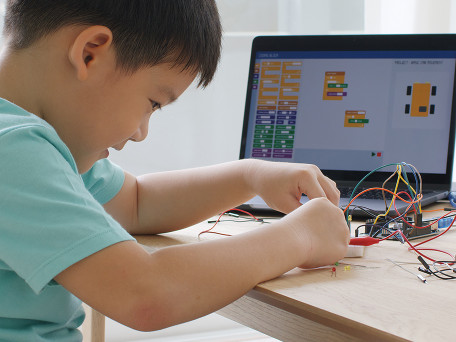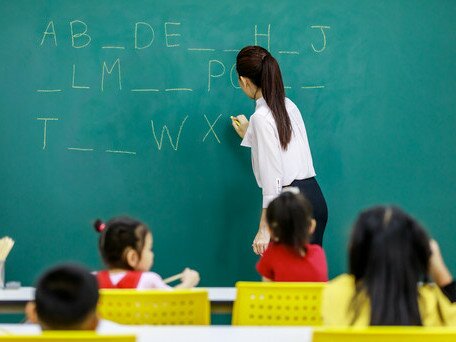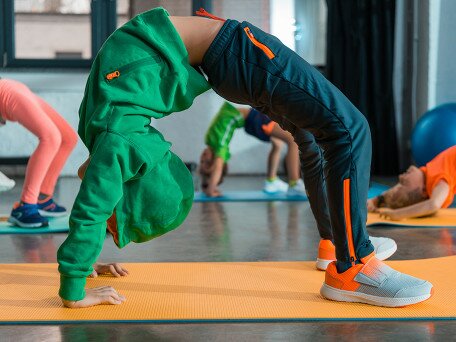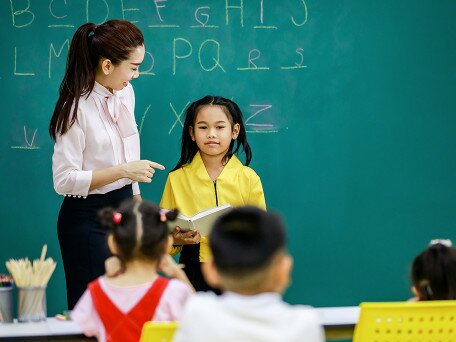Robot Programming Through Play: Effects on Kindergarten Children’s Engagement and Computational Thinking
- Project Scheme:
- General Research Fund
- Project Year:
- 2023/24
- Project Leader:
- Dr YANG, Weipeng
- (Department of Early Childhood Education)

Building on the theory of constructionism and the Digital Play Framework, this project proposes a play-based intervention to integrate RP into kindergarten classrooms.
Fostering computational thinking (CT) has become a growing global focus, and learning to program begins as early as kindergarten (Bers et al., 2022). However, kindergarten teachers often teach CT through structured programming curricula without capitalizing on children’s play. In Hong Kong, there is a lack of evidence-based pedagogical practices to promote kindergarteners’ CT development. Our pilot studies indicate that robot programming (RP) can enhance children’s CT by engaging them in hands-on manipulation of screen-free programmable robotics. Since play appeals to children’s natural curiosity and contributes to their learning, we propose to rigorously evaluate whether play-based pedagogies can better engage children in RP activities and enhance their CT, relative to direct instruction with a structured curriculum. Building on the theory of constructionism and the Digital Play Framework, this project proposes a play-based intervention to integrate RP into kindergarten classrooms. Since researchers debate the value of varying play-based pedagogies and the role of play in learning, this project will use a multi-group experimental design to evaluate the impact of play-based pedagogies versus direct instruction on 360 five-year-old children’s CT learning across eight weeks. Six Hong Kong kindergartens, their 12 classrooms and their 24 teachers will participate. Each kindergarten will be randomly assigned to one of the three groups, with teachers trained accordingly: RP via free play, RP via guided play, and RP via direct instruction (control). Children in the free play group will receive the robots and activity cards, and the children can freely play with the robots during their daily learning center time. In the guided play group, teachers will also have a deck of pedagogical questions to scaffold their children’s play-based RP. In the direct instruction group, teachers will give children step-by-step instructions to use the robots. All children will take pre- and post-intervention CT and engagement tests. Children’s RP activities will be videotaped to investigate their engagement. During and after the intervention, teachers will be interviewed to examine enablers and barriers to the implementation of RP activities. This project will fill an important knowledge gap regarding the comparative effectiveness of CT learning across free play, guided play, and direct instruction. The findings will inform the theorizing of a digital learning framework that can enhance our understanding of embedding digital technologies into classrooms to facilitate children’s learning. Evidence will also inform teachers effective pedagogies for early childhood programming education to equip children with CT needed in a rapidly changing digital society.







